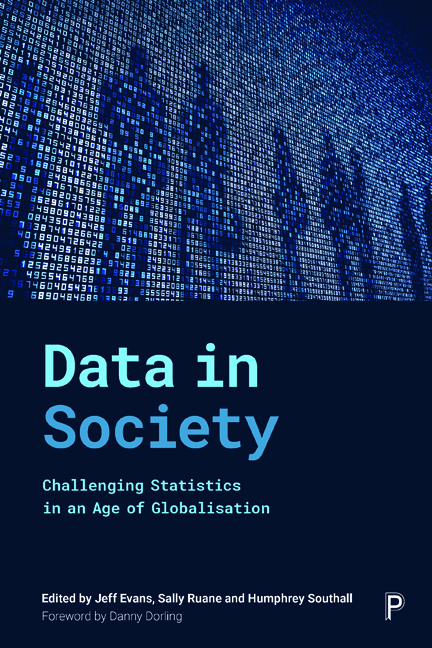Book contents
- Frontmatter
- Contents
- List of figures, tables and boxes
- Notes on contributors
- Foreword
- Preface
- General introduction
- Part I How data are changing
- Part II Counting in a globalised world
- Part III Statistics and the changing role of the state
- Part IV Economic life
- Part V Inequalities in health and wellbeing
- Part VI Advancing social progress through critical statistical literacy
- Epilogue: progressive ways ahead
- Index
Epilogue: progressive ways ahead
Published online by Cambridge University Press: 30 April 2022
- Frontmatter
- Contents
- List of figures, tables and boxes
- Notes on contributors
- Foreword
- Preface
- General introduction
- Part I How data are changing
- Part II Counting in a globalised world
- Part III Statistics and the changing role of the state
- Part IV Economic life
- Part V Inequalities in health and wellbeing
- Part VI Advancing social progress through critical statistical literacy
- Epilogue: progressive ways ahead
- Index
Summary
How can our society's relationship with its data be improved? Our authors offer many pointers to the way ahead. We hope this book will make you better informed, but also help you develop types of action appropriate to your situation as you see it, as an active citizen.
One idea that has guided our activity, and has been a theme of this and the previous two books, Demystifying Social Statistics and Statistics in Society, is that data are a ‘social product’. This means that the wider context in which data are commissioned, captured, analysed, disseminated and interpreted is fundamental to the data's production; so we should ask who really owns or controls these phases in the production of data, how such power is deployed, and what the most fruitful responses in the current situation are. We discuss these issues here first for official statistics, then for commercial data, for social media data, and finally for data created by civil society.
Official statistics
Radical statisticians have tended to criticise government statistics, arguing for constant scepticism and vigilance. Many of our chapters exemplify and justify that vigilance, but we also need to oppose a pervasive cynicism about all statistics. As William Davies (2017) wrote, ‘antipathy to statistics has become one of the hallmarks of the populist right, with statisticians and economists chief among the various “experts” that were ostensibly rejected by voters in 2016’. Elements of the Brexit campaigns and the Trump administration have been marked by a general rejection of all numeric data in favour of anecdote and preconception, for example on counts of immigrants, or the supposed abuses of welfare systems used to justify ‘reforms’.
We need better statistics, not fewer. One safeguard has been the professional standards of statisticians, which mean that the official statistics have generally measured what they say they do, even if this is not necessarily what we would want; indeed, there are notable instances of statisticians resisting politicians’ manipulations (Langkjar- Bain, 2018). In Britain, as Chapter 9 documents, the principle has been established that the Office of National Statistics is independent of the government of the day.
- Type
- Chapter
- Information
- Data in SocietyChallenging Statistics in an Age of Globalisation, pp. 375 - 380Publisher: Bristol University PressPrint publication year: 2019



